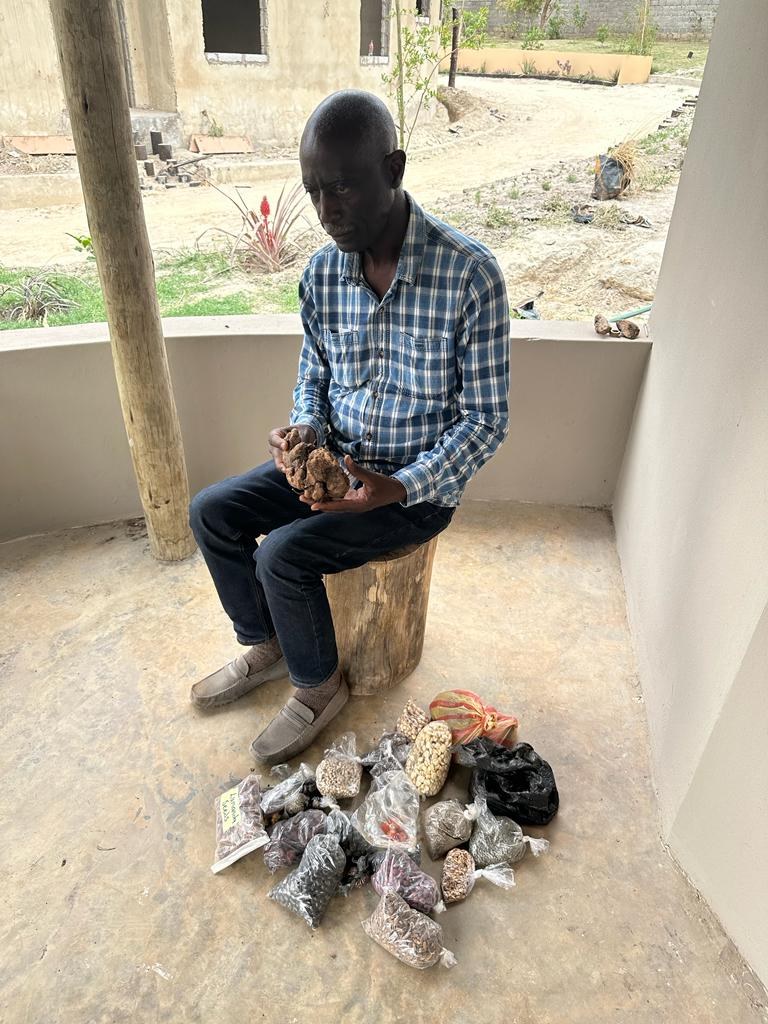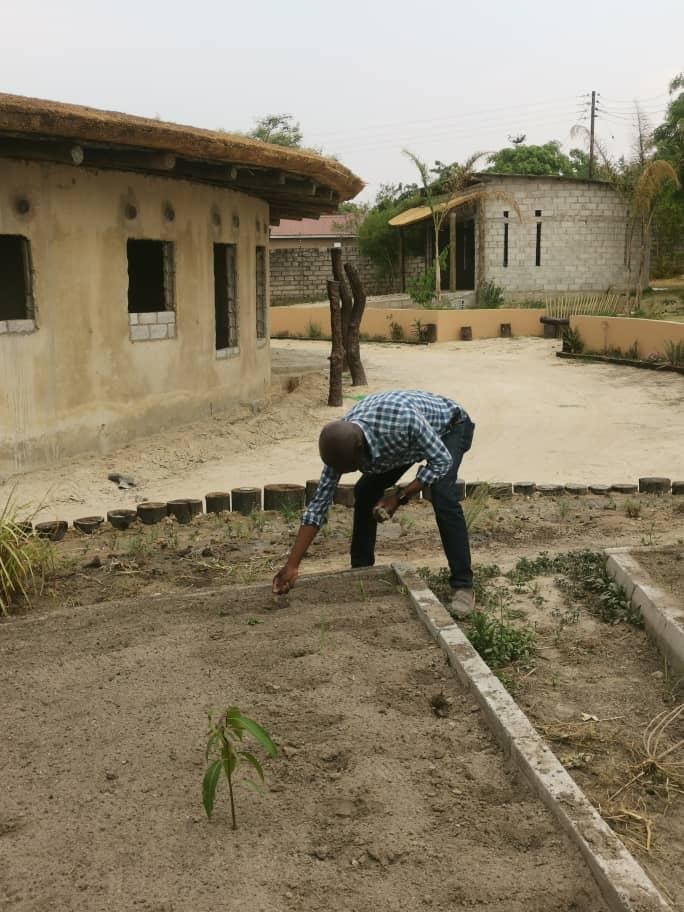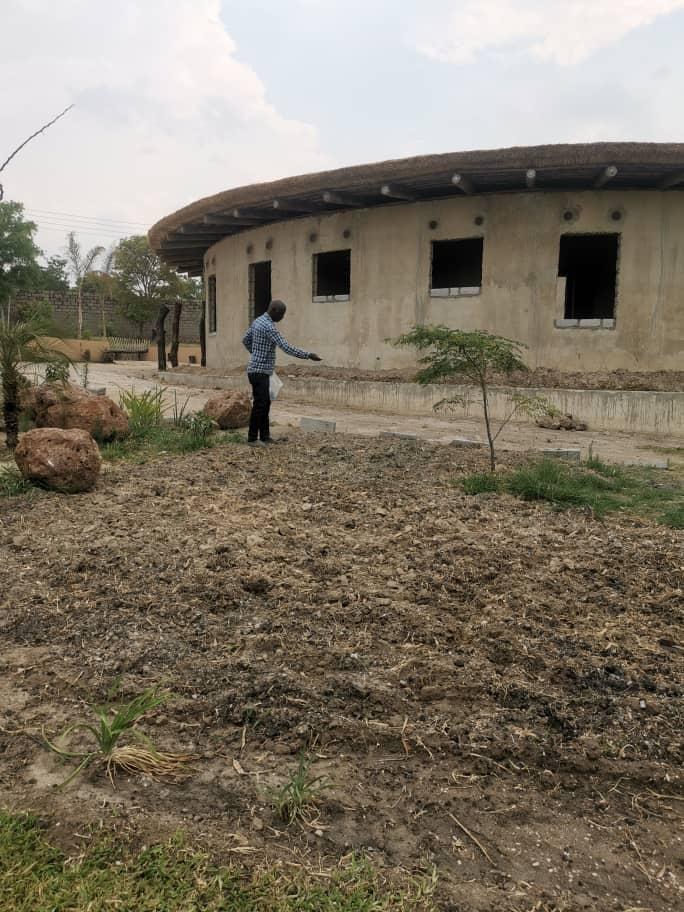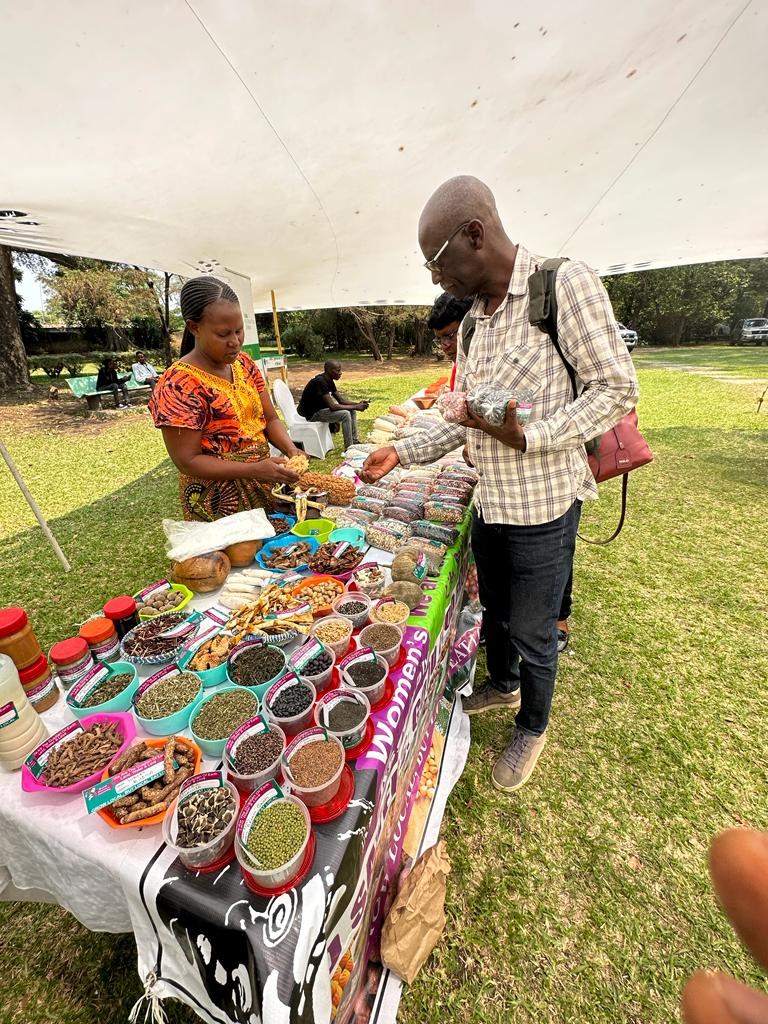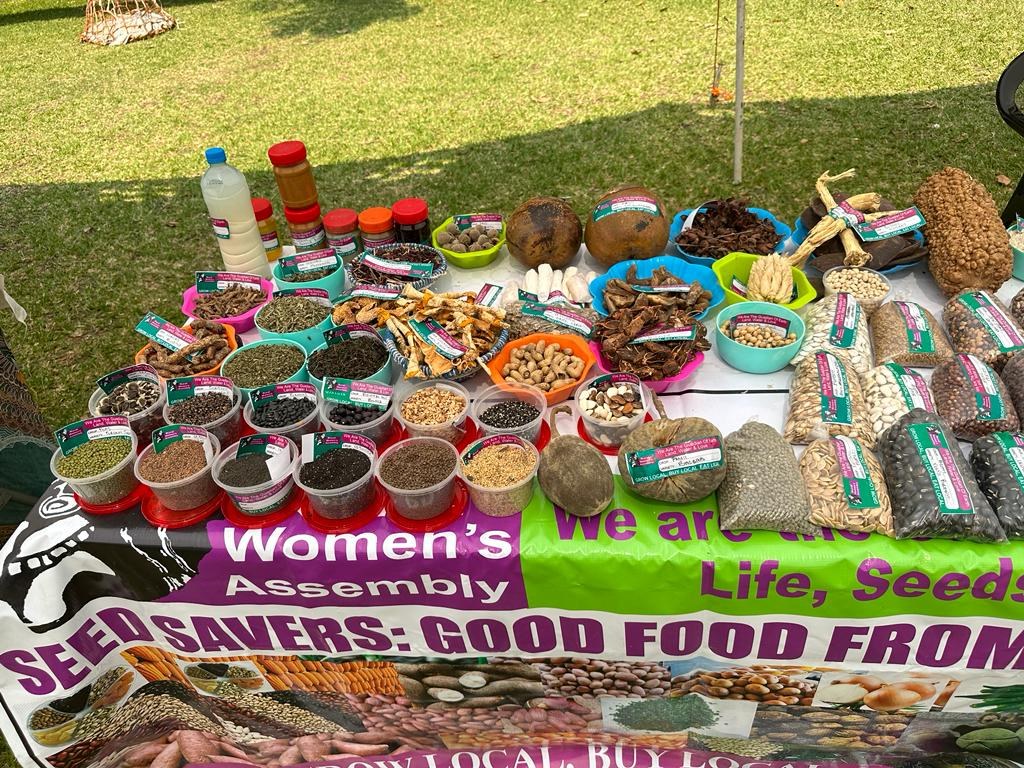About GCNF
The Global Child Nutrition Foundation (GCNF) is a US-based non-governmental and non-profit (501(c)(3) organization that envisions a future where school meals sustainably nourish all children and help them, their families, communities, and nations to thrive.
We provide governments and their partners with knowledge, tools, and connections to build high-quality school meal programs that support all children and contribute to national educational, agricultural, economic, social protection, health, and nutrition goals.
To do this, we:
- Build capacity of governments to implement national school meal programs
- Share best practices and tools to support the creation, expansion, and improvement of national school meal programs
- Engage civil society and businesses to strengthen supply chains and increase political will for school meal programs
- Coordinate with others in the field – nonprofits, schools, and researchers – to raise awareness and ensure strong support and resourcing for school meal programs
- The Global Child Nutrition Forum, a learning exchange and technical assistance conference held annually to support countries in the development and implementation of sustainable school feeding programs
- The Global Survey of School Meal Programs © which aims to strengthen the work of the global school meal network by developing a comprehensive description of all the core aspects of large-scale school meal programs around the world. GCNF conducted most recent survey from July 2021 through March 2022
- The Gene White Lifetime Achievement Award, given to honor individuals who have made outstanding contributions to the worldwide dream of ending childhood hunger
GCNF also offers partnerships in research, technical assistance, and advocacy to ensure every child has access to nutritious meals. We welcome collaboration with all who share our mission. Investing in school meals is investing in a healthier, more resilient future for every child.
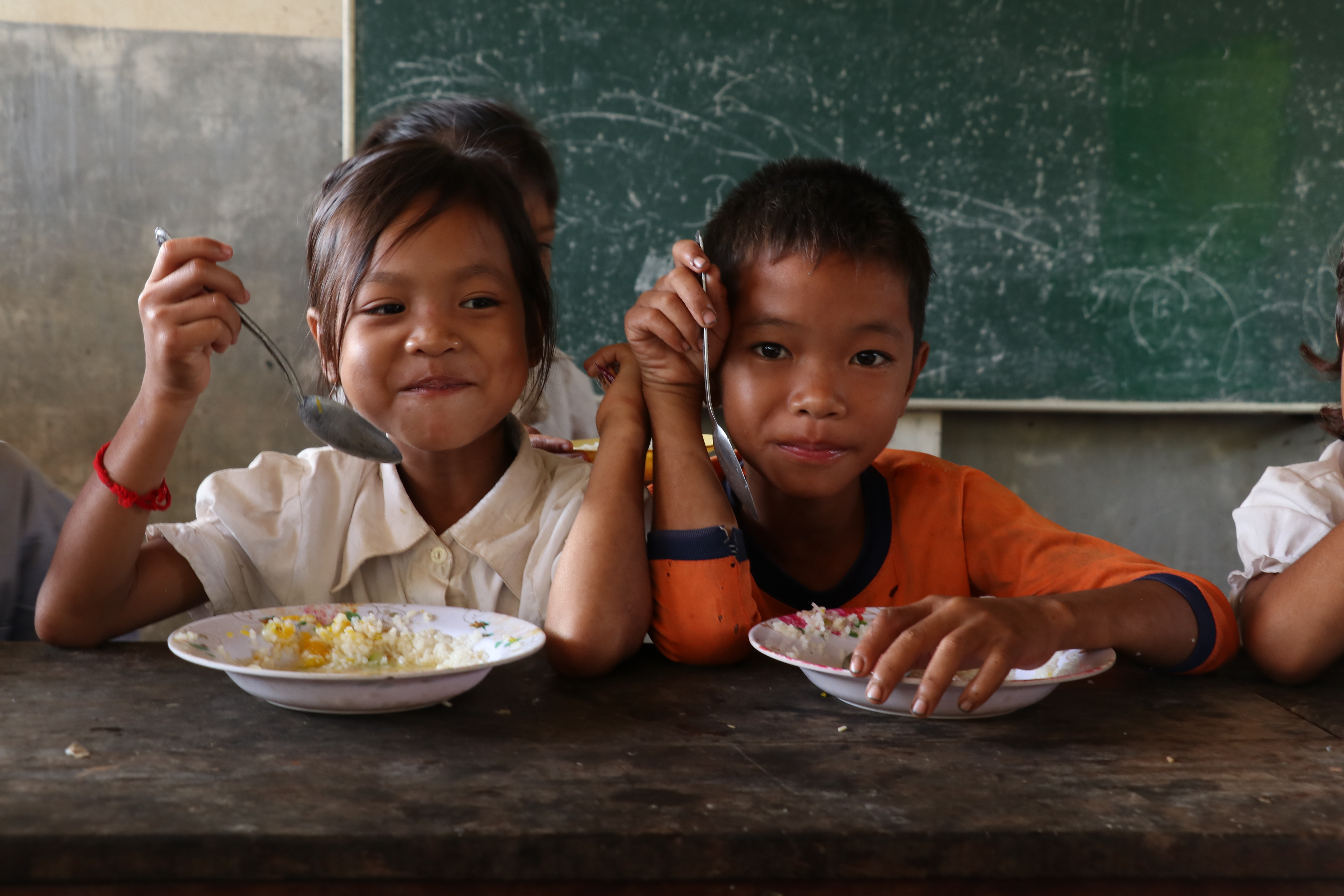

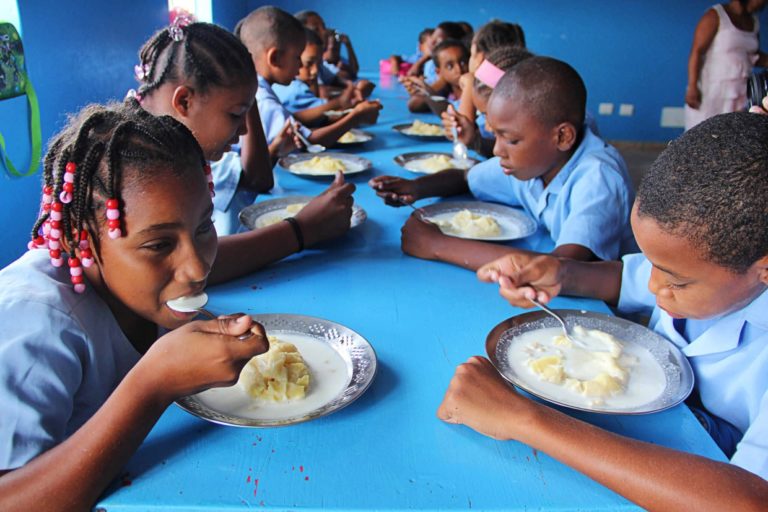
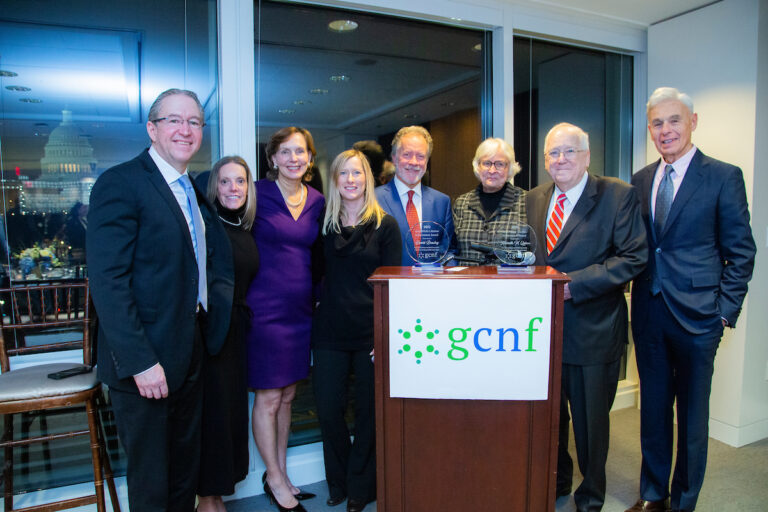

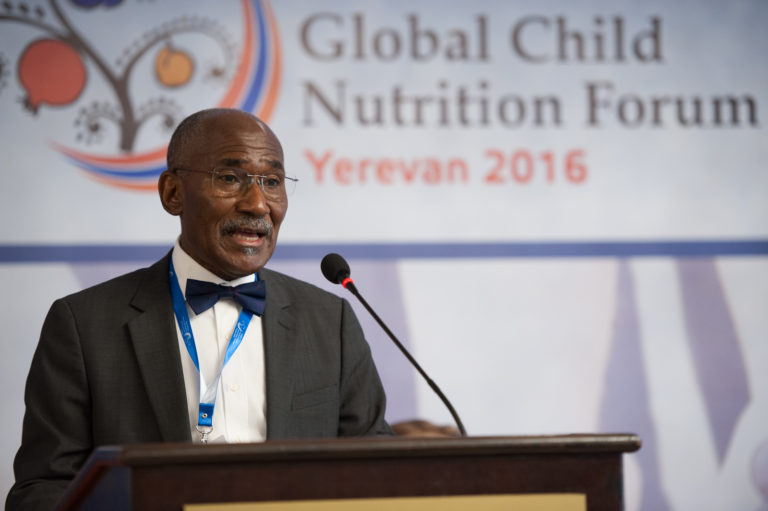
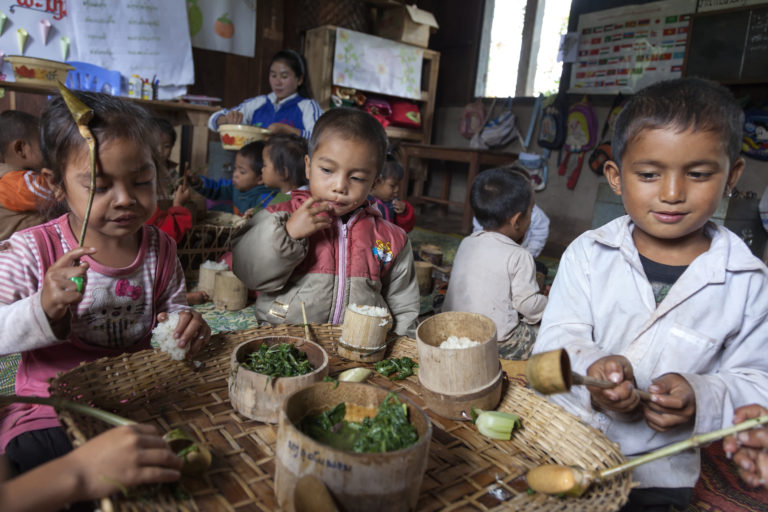
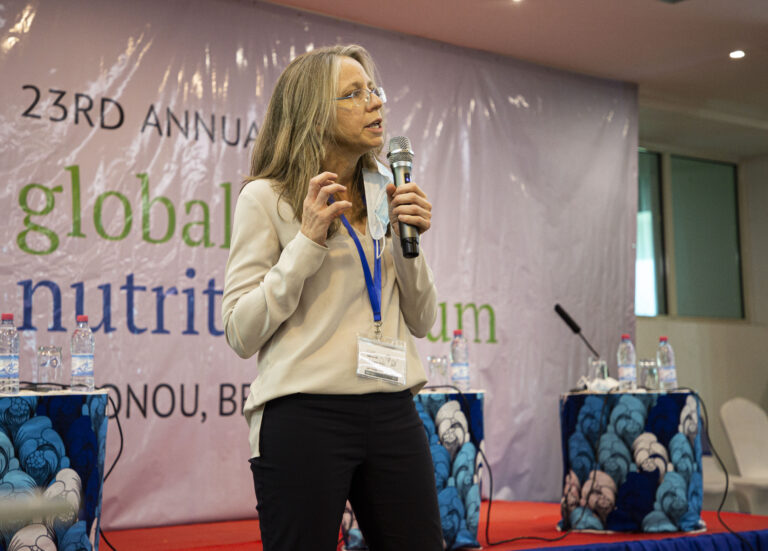

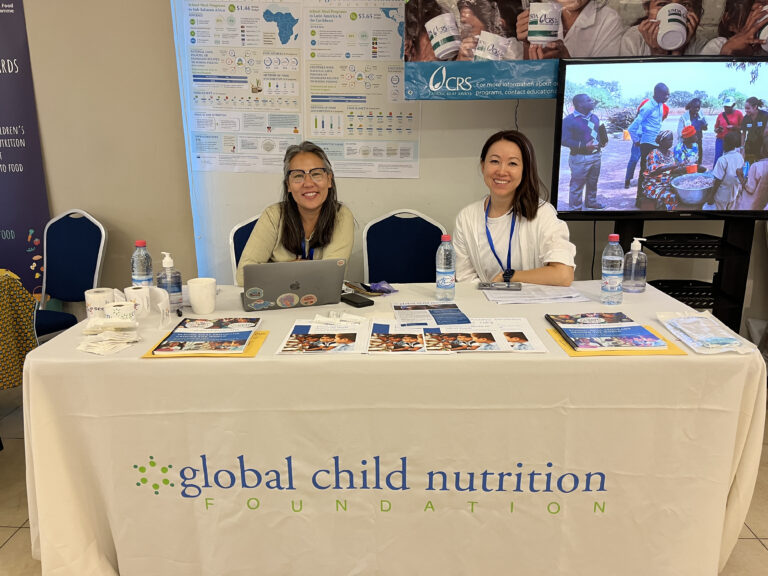
MISSION
The Global Child Nutrition Foundation (GCNF) provides governments and their partners with knowledge, tools, and connections so all children can access high-quality school meal programs that contribute to national educational, agricultural, economic, social protection, health and nutrition goals.
VISION
GCNF envisions a future where school meals sustainably nourish all children and help them, their families, communities, and nations to thrive.
CORE VALUES
Mutual Respect and Partnerships
We are objective brokers of partnerships by enabling cooperation, ensuring inclusive participation, aligning common goals, and establishing mutual accountability. We believe mutual respect creates environments in which sustainable partnerships can be built.
Trust and Integrity
We build trust through our commitment to transparency and accountability to our partners. We promote openness and fairness in the relationships cultivated among our network of governments, civil society, and private sector partners.
Peer Learning and Sharing
We create opportunities for inclusive peer learning and knowledge sharing to inspire connectivity and collaboration among a large and diverse network. We believe that providing a platform for diverse views and amplifying underrepresented voices improves learning, promotes cooperation, and leads to innovation. Knowledge is reciprocal – transfers of expertise, knowledge, and insights go both ways.
Equity and Inclusion
We believe in the inherent dignity and value of all people. We believe in everyone’s right to education, as a tool of empowerment and means for social and economic inclusion. We promote equity regardless of a person’s race, ethnicity, nationality, class, caste, language, religion, belief, sex, gender, gender identity, sexual orientation, age, health, or other status. We condemn all forms of discrimination, oppression, and exploitation. We understand that listening and valuing different points of view allows for better learning and problem solving.
School Meal Programs Work
School meal programs address the three pillars of economic development in one program: education, health and nutrition, and agriculture. Few other programs of scale link these important sectors or have comparable intergenerational benefits.
School meal programs have a positive return on investment. Broadly speaking, findings suggest that investing in nutritious school meal programs today will have benefits in the form of billions of dollars in healthcare cost savings tomorrow. Excluding returns on agriculture, ROI on school meal programs in low-income countries range from $3 to $9 per every dollar spent.
Evidence shows that well-planned and implemented school meal programs work because they:
Contribute to Education:
- Improve enrollment, attendance, and retention
- Improve cognitive functioning and learning
- Reduce behavior problems and depression cause by hunger and household food insecurity
Contribute to good health and nutrition for the children and for subsequent generations. They can be designed to:
- Address caloric and specific nutritional needs
- Prevent or mitigate obesity
- Limit the negative effects of stunting
- Leverage nutrition and health education
Alleviate household poverty and food insecurity:
- Offset family food costs
- Ensure school children receive at least one meal a day
Support agriculture, private sector, community, and economic development:
- Ensure a predictable, long-term demand for farmers’ produce
- Develop demand for private sector engagement (food processors, transporters, etc.)
- Create jobs, particularly for relatively low-skilled women and youth (as cooks, food handlers, etc.)
School meal programs are present in almost every country, functioning as one of the largest safety nets in the world. As of 2013, 368 million children - 1 in 5 - receive a daily meal at school. For many children in vulnerable situations, a school meal is the only nutritious meal they will receive throughout the day.


